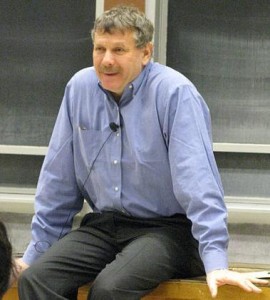 You know these techniques have to do with revealing your whole self at work, the question is: how?
You know these techniques have to do with revealing your whole self at work, the question is: how?
We look to the career path of Dr. Eric Lander, founding director of the Broad Institute of MIT and Harvard, a genetics research center established to help scientists work collaboratively, and whose mission includes discovering the molecular basis of major human diseases. He started out as a math genius, and–good for him–wanted more.
Recently highlighted in the New York Times, Dr. Lander’s work history can serve as a guide on how to find more fulfillment by switching your career track. From his story we gather these top 10 tips for switching careers:
1. Disrespect convention. If you’re working to transform something — be it a whole discipline, or your individual career — traditional norms may get in your way. Dr. Lander relates why the Broad Institute is interdisciplinary at its core:
We used to have these boundaries of the chemistry department in the chemistry building, and the biology department in the biology building, the math department, the computer science department. Young scientists today… have no respect for these boundaries, and they shouldn’t. They just munge it together… people are now exploring the fusion cuisine that comes out across all these different disciplines.
2. Leverage your frustrations. Author Gina Kolata writes:
“I began to appreciate that the career of mathematics is rather monastic,” Dr. Lander said. “Even though mathematics was beautiful and I loved it, I wasn’t a very good monk.” He craved a more social environment, more interactions.
3. Identify all your talents, then use them.
“I found an old professor of mine and said, ‘What can I do that makes some use of my talents?’ ” He ended up at Harvard Business School, teaching managerial economics.
4. Embrace your naivete. So many of us try to hide our inexperience; Lander knows better:
